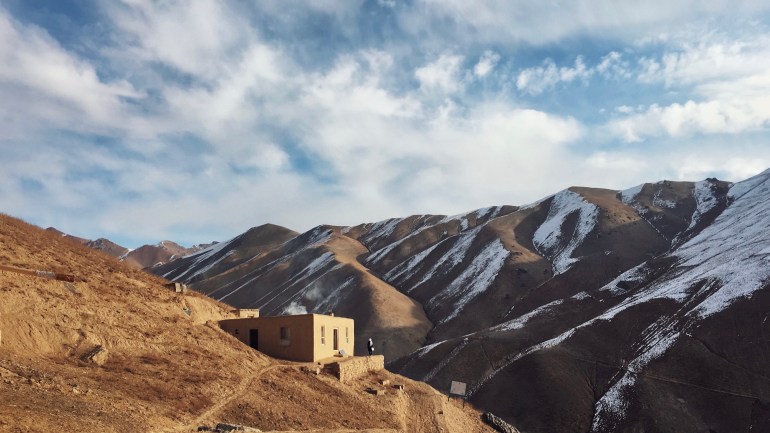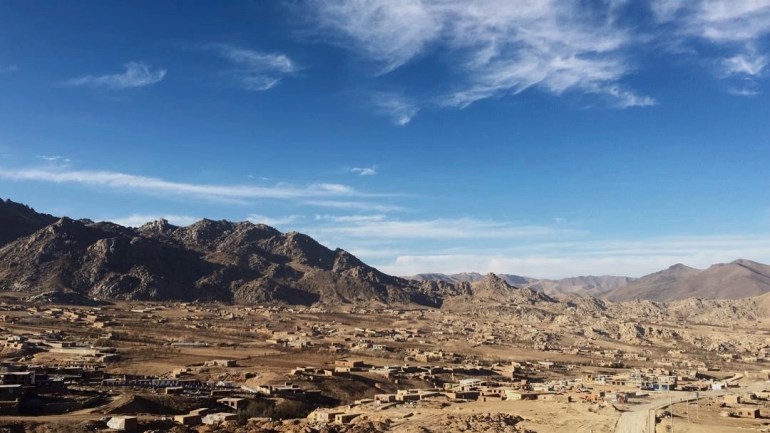Afghan Hazara’s journey to Pakistan for work meets brutal end
The killing of Hazara workers in Pakistan highlights the plight of the ethnic minority who are forced to leave Afghanistan for work.

Kabul, Afghanistan – When Aziz Begi left his native Daikondi province to resume work at a coal mine in Pakistan, last month, his life was brimming with new possibilities. His eldest son was preparing for the college entrance exam and his wife was just about to give birth to their seventh child.
It was these prospects that filled the 36-year-old with hope during the 800km (500 miles) journey across the Durand Line, which marks the border between the two countries. After years of travelling between Daikondi, Kabul and Iran to find suitable work to feed his growing family, he had finally secured a gainful form of employment in Quetta, Pakistan.
Keep reading
list of 4 items‘Role model’: Pakistan’s Hazara woman packing a punch
Gunmen kill many Hazara Shia coal miners in southwest Pakistan
Pakistani Hazara families refuse to bury dead after attack
Last week, he was among seven Afghan coal miners, including two of his cousins, who were murdered in a targeted attack due to their ethnicity, being members of the Hazara minority, in the town of Mach, in southwestern Pakistan. Ten people – all ethnic Hazaras – were killed in the attack in total, say security officials. Quetta, the provincial capital of Balochistan, has seen hundreds hold a sit-in protest since the January 3 killings.
Like Aziz, the majority of the miners had travelled to Mach, in Pakistan’s Balochistan province, from the remote Afghan province of Daikondi, an intensely impoverished part of that country.
Residents from Daikondi, one of the poorest provinces in the country, are forced to travel to the capital Kabul or neighbouring countries in search of better opportunities.

Aziz’s brother, Qayoum, says his brother was an example of an all-too-common story in Daikondi – home to more than 700,000 people.
“My brother was constantly on the move for 10 years. He was always travelling from place to place just trying to feed his wife and children because there’s nothing here in Daikondi.”
Throughout that decade, Aziz uprooted his family several times. He took them to Kabul, but soon realised that working as a day labourer was barely enough to provide his basic living expenses in the capital, too less to put enough food on the table.
Discrimination and abuse
By 2017, he even took his family to Iran, but soon found himself faced with the kinds of discrimination and abuse, rights organisations say, is a common threat to Afghans, particularly Hazaras in Iran.
Like millions of other Afghan parents, Aziz found that he was unable to enrol his children in school, something he saw as necessary to them being set on the path towards a better life than his. Iranian authorities have imposed restrictions on the schooling of immigrant children.
Adding to his fears was the fact that, in recent years, Tehran has been accused of recruiting Afghan boys as young as 14 to fight in Syria. He was worried that as his boys grew older, they too could have been sent off to fight in a foreign war.
In the end, none of that mattered. The family was deported less than a year after they arrived in the neighbouring country.
When they returned to Daikondi in 2018, Aziz’s family merely became a part of the province’s statistics. According to the Central Statistics Organization of Afghanistan, more than 80 percent of residents of Daikondi, mostly men, have lived abroad for at least six months at a time.

As the vast majority of Daikondi come from the Hazara minority, going abroad for work comes with its own pressures and difficulties.
In Pakistan, Afghans and Pakistanis from the Hazara minority have had to deal with the threat of targeted killings for years now.
“These people were slaughtered simply for being Hazara,” said Zainab Akbary, a 19-year-old student in Quetta who has been part of the days-long protests against the recent killings.
Rights groups and members of Pakistan’s Hazara community say that hundreds have been killed in targeted attacks and large-scale bombings by sectarian organisations who target the community due to its adherence to the Shia sect of Islam.
Still, Zainab says the people of Daikondi accept the hardships in both nations in order to provide for their families back home.
Remittances serve a lifeline
The remittances serve as a lifeline to the people in the province.
“In Daikondi, you can have a family where seven members are employed, but their collective income doesn’t amount to more than 1,000 Afghanis [$13] a month,” said Ali Forogh, a native of Daikondi who currently works in the Office of the Second Vice President.
Speaking to Al Jazeera, Forogh said these meagre wages mean many residents of Daikondi are caught in endless cycles of debt for simple, everyday goods.
“People often have to buy even simple groceries on debt and work for several months to pay off those debts before the cycle starts all over again.”
I want to reassure the Hazara families who lost their loved ones in a brutal terrorist attack in Machh that I am cogniscant of their suffering & their demands. We are taking steps to prevent such attacks in the future & know our neighbour is instigating this sectarian terrorism.
— Imran Khan (@ImranKhanPTI) January 6, 2021
Forogh said the roots of this situation lie in government inattention. He says over the last 20 years, very little development has reached Daikondi, which has hampered the economic prospects of the province.
“The province still lacks basic infrastructure and industry,” Forogh said.
A 2017 survey by the National Procurement Authority (NPA) of Afghanistan found that only the provincial capital, Nili, had access to electricity, and even then, that was only 0.4kV in a 1km radius around the main government offices.
The survey went on to state that the remote, mountainous geography renders the province unreachable for weeks at a time in the winter months.
Qayoum, the brother of Aziz, said this lack of economic prospects has led to an exodus from the province.
“We have villages where only 10 or 20 families live. How can they find employment in such a situation?”
Back-breaking jobs
Most of those who leave Daikondi, said Qayoum, take on back-breaking jobs in mines across Afghanistan and Pakistan. But in the winter months, the freezing cold forces most of them across the Durand Line and into Pakistan. An Afghan worker makes nearly 24,000 Pakistani rupees ($150) per month working in the mines in Pakistan.
Sources speaking to Al Jazeera agreed with the NPA assessment, saying the biggest hindrances to Daikondi’s development are the mountains and the cold. More than 95 percent of the province is mountainous.
Raihana Azad, an MP from Daikondi, says the landscape and the weather have cut people off from not only their families, but also from basic resources.
It takes about 14-18 hours to travel from Nili to Kabul – a distance of about 300km (186 miles).
In the winter of 2019, Azad said she had to call on the Ministry of Defence to send helicopters to transport several pregnant mothers from the districts to Nili for treatment.
Qayoum says had his brother and cousins not left when they did, it would have been impossible for them to reach Quetta in time. He said the winter cold and road closures have already cut the people of Daikondi off from one another.
“People can barely go to the stores right now, much less to another district,” Qayoum said of the impact the cold and snow have on the poorly built mountainous roads.
Each source speaking to Al Jazeera said all of these factors are what push people from Daikondi to Iran and Pakistan for work, even at the cost of discrimination and physical violence.
Pakistan is also home to a sizeable native Hazara minority of more than half a million, who trace their roots back to Afghanistan but most of whom migrated to Pakistan more than a century ago.
After the attack on the miners on Sunday, there has been anger in the Pakistani Hazara community, who have refused to bury the dead until those responsible are brought to justice. The Pakistani prime minister has asked authorities to “apprehend these killers [and] bring them to justice”.
But in Daikondi, Qayoum and other families say there is no end to the indignities of poverty on either side of the Durand Line.
“Eventually, we will have to bury them, and that too costs money. We have no choice other than to ask our relatives in Afghanistan and abroad to help us pay for it, imagine that.”
Additional reporting by Saadullah Akhtar in Quetta